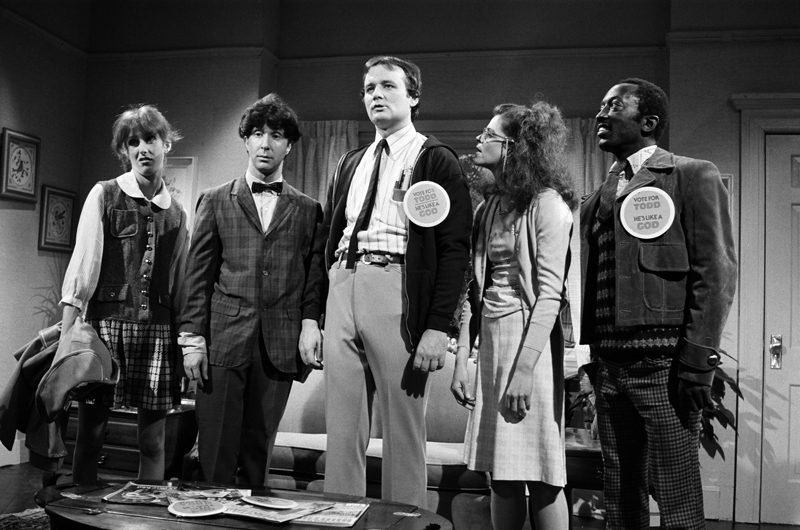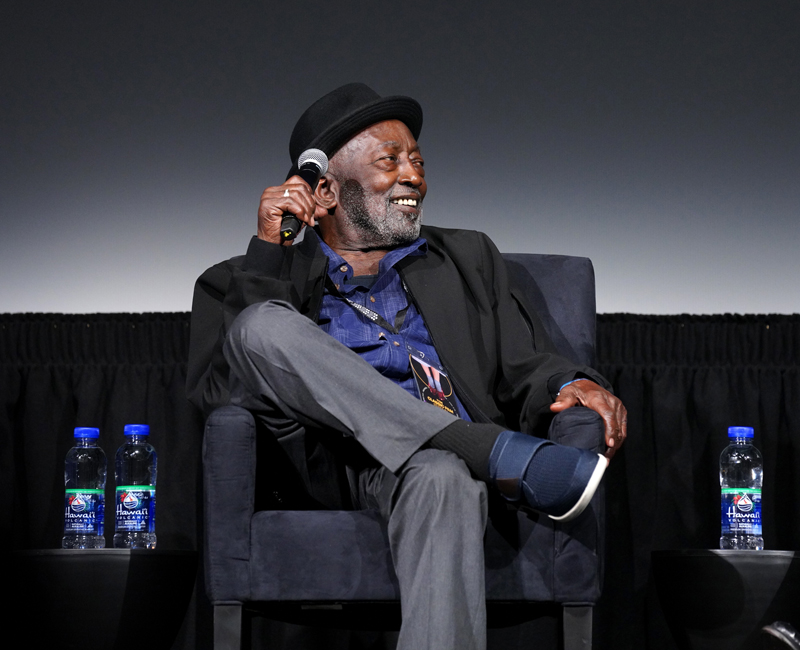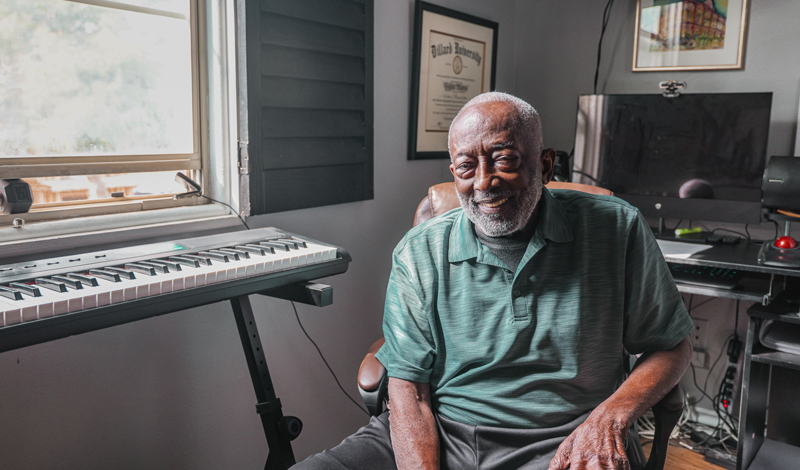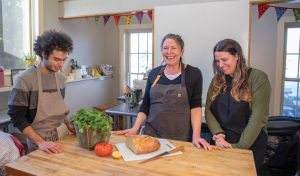by Garrett Morris
Los Angeles
It didn’t help that my grandfather was a particular kind of minister—the kind that preached against sexual license on Sunday but practiced it liberally during the week. The problem was, I felt no less a hypocrite singing praises in the pews; I just never could swallow what was being dealt from the pulpit, about a God, somewhere out there, who was gonna save me. In any case, in my early 20s I turned my back on my grandfather’s church, turned away and didn’t look back.
For all its faults, the Christianity of my childhood was still, without a doubt, a kind of system. My own personal belief—beautiful in its way and free of dogma, was nonetheless just that—a personal credo: I have the power within me to realize my dreams! It carried me far, this motto—far from slow, churchgoing Gert Town, the little New Orleans burrow where I was born, and far in terms of my dream of becoming an actor, screenwriter and singer-composer.
By 1975, I’d studied intensively under a Julliard School of Music professor, been involved in a number of Broadway and off-Broadway shows, produced a play of my own and had landed work on a little-known show called Saturday Night Live as one of its seven original cast members. But my belief wasn’t organized in any way, wasn’t part of any kind of system.

Like a sailor setting out to sea without a compass—I began to drift. My first cocaine high was a beautiful one—it felt like empowerment, like I was at the helm, steering the ship of my life. But the feeling lasted only 15 minutes, and I was back to myself again, no more in control of my life than I’d been a quarter hour earlier. By the time my tenure ended at SNL, I was in my early 40s and a cocaine fiend. I came to Los Angeles and brought the habit with me. It’s ironic that, though something of a household name, I never felt quite at home with myself.
Through all the ups and downs of my career, I never stopped seeking a spiritual life. Even alongside drug use, I schooled myself in karate, receiving my black belt, and explored meditation and positive psychology, which were wonderful, helpful things. It was only natural that I found myself in conversations with others who were similarly inclined.
I’d met Art Evans, a fellow actor, and his wife, Babe, in New York, in the ’70s. I met them again in Los Angeles and was struck as ever by the sincerity and joy with which they carried themselves through life. They shared with me a Buddhist mantra, a chant: Nam-myoho-renge-kyo. This Law, they explained, was operating all the time, in all things, neither above me nor below me but within me and within all life.
I chanted with them from time to time, and to myself, too, and it felt good: positive and rhythmic. Like the lotus flower, which blooms and fruits at the same time, I felt the effect of chanting immediately. However, I wouldn’t immerse myself in the practice for some 20 years after my friends planted in my life the seed of Buddhahood, the wisdom of Nam-myoho-renge-kyo. In that sense, I was more like the oak tree that waits a good while underground before it comes on up out of the earth. Not until I hit a real rough patch—a painful divorce in 2001 and a dry spell of work, did I decide it was time to take up Buddhism in earnest. I’d become uncharacteristically negative—argumentative and downcast. When I spoke with my Buddhist friends, however, my negativity melted away. We just kept on talking, them and me, on walks, over coffee, on the phone; and I kept on chanting here and there and then more and more often, realizing, little by little, that Buddhism was what I’d been looking for, what I’d believed in all along.
In 2005, at the age of 69, I ended a 35-year relationship with cocaine and haven’t touched it since.

One day, my Buddhist friend and I were talking, and I said, “You know, I think I’d like to get the Gohonzon.”
“All right,” he said, “I’ll help you.”
I received the Gohonzon in March 2009 and on the day I joined did gongyo twice in one day for the first time, morning and evening. The next day I did the same, and the next day and the next. Chanting in rhythm with the day gave me a sense of what it was to practice this Buddhism as a practical system, as something more organized and substantial than my own personal creed or idea. Chanting in a consistent way hitched me up to the rhythm of the cosmos, to the visceral feeling in the depths of my life that there is a rhythm, or a Law of the universe—the Law of cause and effect—and it is active in me as much as in another, as much as in a grain of sand or a blade of grass. As my mentor, Ikeda Sensei, says: “I am not obliged to fall into decline. I am not obliged to be miserable. I have a right to be happy. The honest and true have a right to triumph” (Men Shining With Youthful Brilliance, p. 26). To me, my mentor is saying that if you’re about truth, if you’re about living with a deep reverence for life, then you’re not obliged to suffer; actually, you’re obliged to be happy.
It’s true that old men have a reputation for waking up grumpy, but chanting in the morning, I get my day on course, on the course of positivity, self-control and happiness. In 2012, I found a wonderful partner, a beautiful lady named Kimberly. More recently, I was nominated for a star on the Hollywood Walk of Fame and landed a role tailor-made for me, on a show set in the shelter-in-place phase of the pandemic, which doesn’t require me to move around too much. All this is nice, but the important thing is that we keep in rhythm, the universe and me, that I move through the day a happy person, connected with others at the deepest level, where beats the rhythm of life itself.
What advice would you give the youth?
Garrett Morris: Sometimes what you’re chanting for will happen right away, like a lotus flower fruiting and blooming at once, sometimes like an oak tree, taking its time. The important thing is to keep on keeping on, getting in rhythm with yourself and the universe, morning and evening.
You are reading {{ meterCount }} of {{ meterMax }} free premium articles





